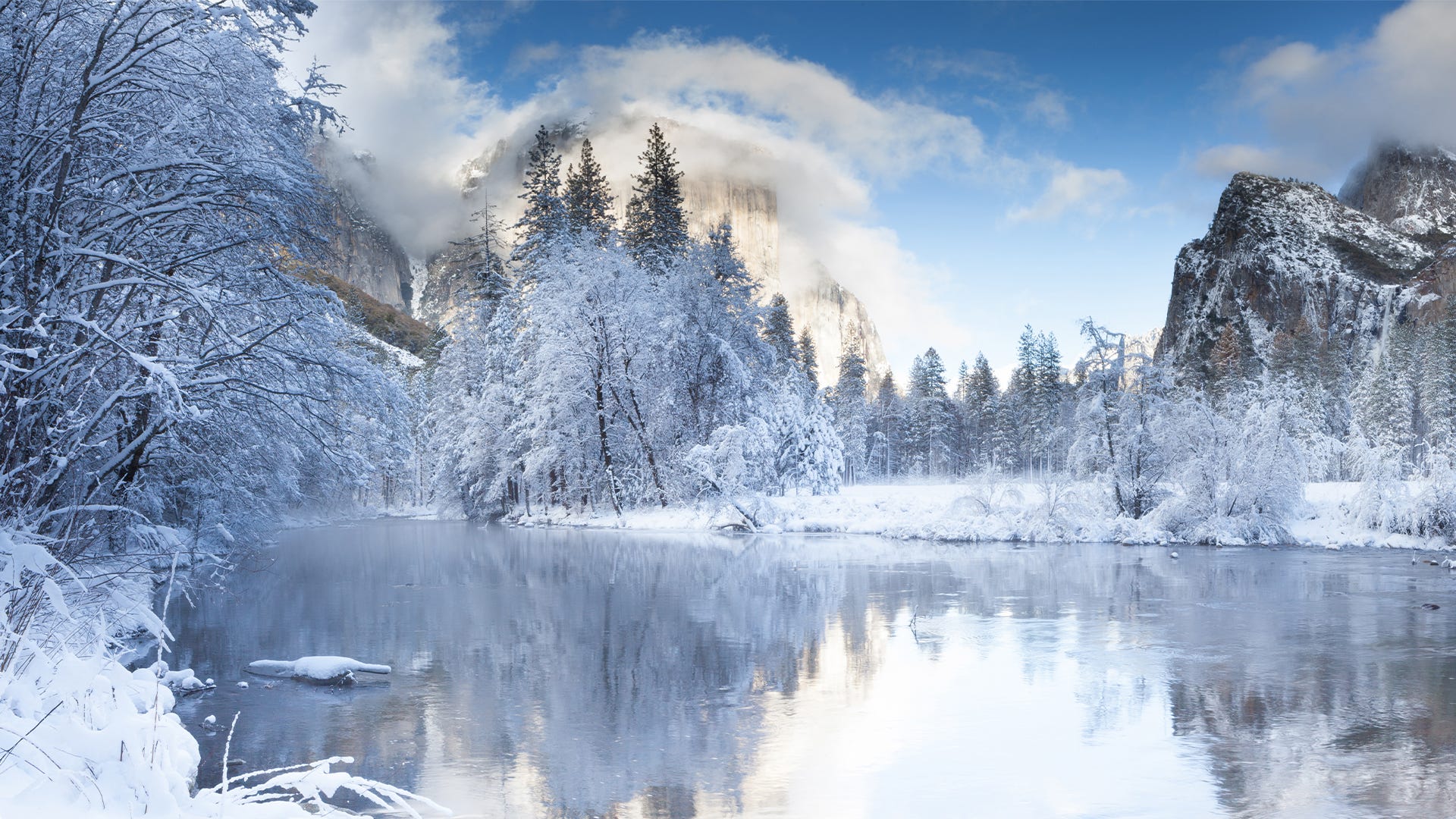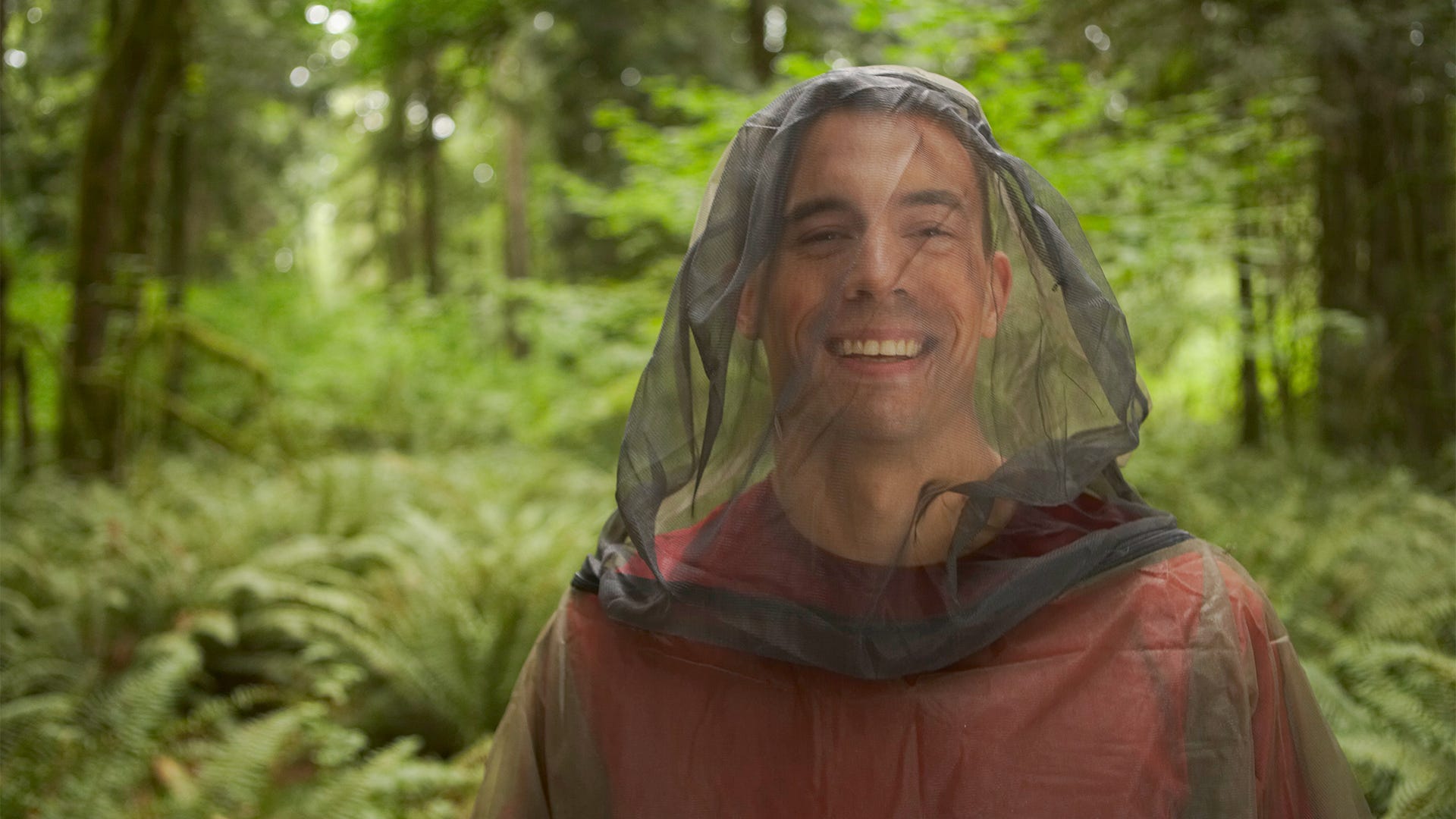
When it comes to pesky summer insects, black flies are at the top of the list. These biting insects are a real nuisance and could potentially cause diseases or harm because of their sheer numbers. In the most severely affected areas, protecting yourself against black flies can make or break your plans to spend time outdoors. Learn about what these insects are, their characteristics, and everything else you need to know.
WHAT ARE BLACK FLIES?
Black flies are a family of insects that include about 1,800 individual species. In North America, they are particularly numerous in the northern part of the continent, including wet areas of Canada, Minnesota, Maine and Michigan. During heavy activity cycles, swarms of female black flies will often descend on unprotected hikers, boaters, fishers, hunters and campers and bite as they seek a blood meal to assist in egg production.
These clouds can be so thick that they literally choke their victims to death when hundreds of these bugs enter into the victim’s airways and block their ability to breath. Attacking swarms can even send victims into anaphylactic shock due to the overwhelming number of bites.
On top of those problems, black flies can also carry a number of diseases. The most notable, river blindness, is a problem in North America, South America and Africa.
Aside from its tendency to swarm people and larger animals, the black fly can be identified by its humped back, which has earned it the “buffalo gnat” nickname. Black flies are also notable for their pointed rear end, downward facing head and small eyes.
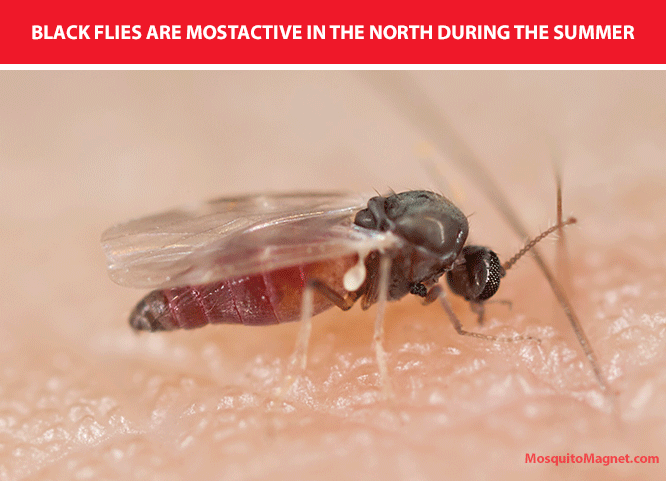
REGIONAL EFFORTS
If you live in some areas, the effort to stop black flies and the diseases they carry may already be taking place. In some municipalities, waterways are regularly treated with an insecticide that destroys the eggs of these biting insects.
Pennsylvania, for example, has a statewide program to suppress black fly populations. For the most part, these programs end up being a boon to the tourism businesses in rural areas – particularly for fishing, hiking and outdoor sport venues. In Pennsylvania, black flies were a problem in the state capitol of Harrisburg, which probably made it very easy to get that program funded!
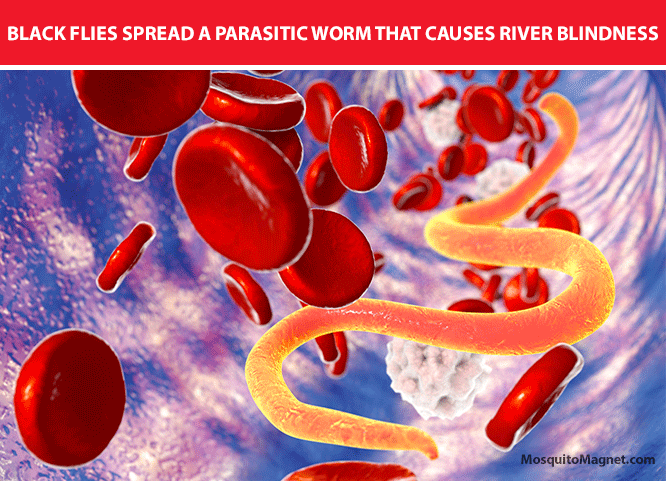
BLACK FLY BITES
Black flies can be found all over the United States, but their bites don’t typically cause the dangerous diseases that occur in the other regions of the world, like Africa or South America. Those kinds of black flies can transmit “river blindness” disease among other serious illnesses.
In America, these flies typically bite near the head or the face. The bites look like small puncture wounds and can swell up. Some will barely be affected by bites, while others might experience a lot of swelling. Other symptoms might include headaches, nausea, fever, and swollen lymph nodes.
Treating these bites with ice, cortisone, or prescription topical steroids can help with the inflammation and itchiness. Be sure to wash bites with soap and water to keep them clean and avoid infection.
PREVENTING BITES
If you’re planning a hike, fishing trip, or camping expedition into areas where black flies are known to be bad, then you’ll want to skip the traditional summer wear of typical suburban life. In short, you want to cover yourself up. You don’t want any skin available for these insects to bite.
That means you’ll want long pants and long sleeves. Further, tuck your shirts into your waistband and push your pant cuffs into your socks. Gloves may not be a bad idea either.
For the highest quality of relief, you’ll also want a head net, which will block these bugs from attacking your face, nose, mouth, ears, and eyes. These nets will make you look a lot like a beekeeper, but they are your best defense against black flies (and mosquitoes) when it comes to clothing.
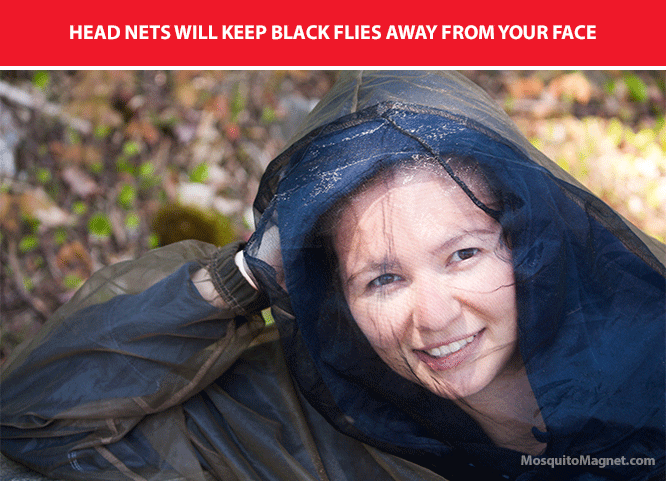
Another way that you can keep black flies away is by avoiding their habitats. These insects are drawn to moving water – making sure your yard doesn’t have a garden stream or a pond with a fountain is the first thing you can do to ensure you’re not making your property their home.
You can also clear brush that hangs close to or in the water to reduce the objects that black fly larvae can attach themselves to. Although they need fast, moving water to breed, adults still need spots to hang out on that are dry.
Male insects feed off of nectar instead of blood, so these can be tricky to avoid if you have a luscious garden. Limit the number of flowers that produce a lot of nectar in your yard or invest in other plants and greenery.
Other methods that you can use to prevent bites are:
- Wearing light-colored clothes
- Using a fan on your porch
- Lighting campfires
CO2 BLACK FLY TRAPS
If you’re worried about black flies on your property, then be sure to check out the CO2 mosquito traps available from Mosquito Magnet®. These traps emit an attractant that draws mosquitoes – and black flies – away from areas where people congregate. As the flies and mosquitoes buzz close to the trap, they’re vacuumed inside where they’re caught in a net and die of dehydration.
Why do mosquitoes and black flies fall for the deception? These insects seek out the odors and body heat mammals produce, a combination that Mosquito Magnet® traps are made to replicate. The mosquitoes and black flies can’t tell the difference and come looking for the blood meal they need to survive and breed.
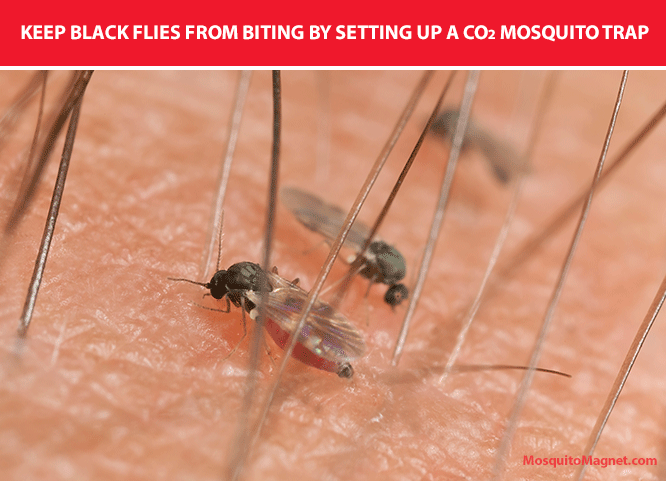
FIGHT BACK AGAINST BLACK FLIES
While you may be most familiar with Mosquito Magnet® from its ability to attract and trap mosquitoes, these CO2 traps are perfect for dealing with black flies, too. To learn more about these CO2-biting insect traps, join Mosquito Magnet® on Facebook. You can also subscribe to our

